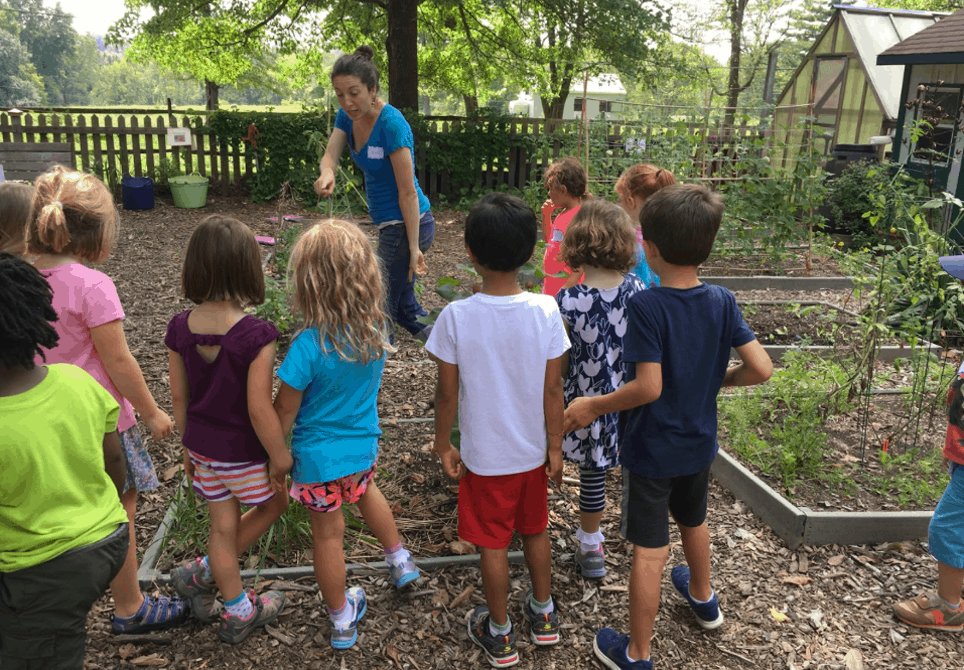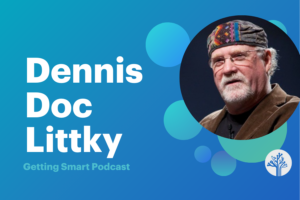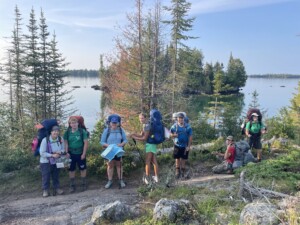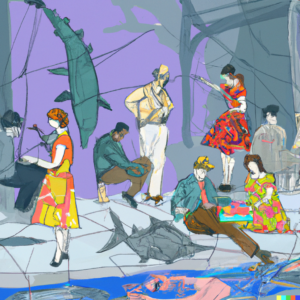4 Steps To Make Your Field Trip Matter

During my time as an elementary school teacher, a group of us took our second graders on a field trip to ride a riverboat down the Ohio River.
It was about a 30-minute bus ride from our suburban school district to the heart of downtown Cincinnati. As we headed down I-75 and into the city, one of the students sitting next to me on the bus looked up and shouted, “WHOA! Are we in New York City?” Immediately after, another student said, “Yes! I think the Statue of Liberty is going to be in that water up there!”
The reaction of these two 8-year-olds–who had never travelled the 20 or so miles from their hometown into the city it neighbored–has stuck with me for more than a decade.
Field trips can be a powerful way to engage kids in the world around them–and to hit learning standards across the curriculum. Yet, not all field trips are created equally. In the era of high-stakes testing, field trips have often become more “end of the year” entertainment than a powerful way to meaningfully engage kids in learning.
I recently had the opportunity to experience field trip Utopia with my daughter’s Kindergarten class. We visited Green Acres–a local working farm established by a family foundation organized around a mission to “encourage conservation and appreciation of nature by providing the public, particularly children, opportunities to study plant and animal life in their natural settings.”
Observe. Ask. Explore. Dig. Plant. Work. Touch. Taste. #placebaseded pic.twitter.com/OXCihjjEAU
— Carri Schneider (@CarriSchneider) September 8, 2016
In just a few hours on the farm, the kids planted seeds, plucked and ate fresh tomatoes from the vine, turned and sifted compost, watered the garden, prepared a bed for planting, learned about worms, observed chickens and shared a community “farm to table” meal.
As a parent chaperone and keen observer of the teachers and field trip hosts, I picked up these four tips to make your field trip matter.
1. Plan with intent. Field trips shouldn’t be an afterthought. Teachers should begin with the desired learning outcomes before researching field trip opportunities. Teachers should explicitly ask the field trip hosts how they will engage students in meeting those outcomes, so they can set up the students for a successful visit.
2. Frame the experience. Weeks before my daughter’s first field trip to the farm, the teacher emailed families to describe why the field trip was a valuable use of our children’s time and to explain specifically what they would learn through the experience.
Teachers should similarly prepare students by setting up the expectations for learning ahead of time. The bus ride is a good time to frame the goals for the field trip and to ask students questions about what they hope to see, learn and experience.

3. Ensure experiential learning. As soon as we arrived on the farm we visited, our hosts explained that the students were there to work and to learn. Right away the students were engaged as meaningful participants in the experience and not passive bystanders.
The kids weren’t just turning the compost to see how compost is created. They were turning and sifting the compost so they could work together to load it into the wheelbarrow and push it together into the vegetable garden to enrich the soil. In other words, the learning experience was authentic and not contrived. Look for field trips that prioritize experiential learning.

4. Connect and reflect. While the field trip hosts are responsible for ensuring that the experience is a valuable one, the teacher is the most important factor. The best way to do this is to connect the learning in the field trip to the regular classroom curriculum and to reflect on the experience in the broader context of your goals for learners.
After the field trip with my daughter’s class, the teacher sent the following email that provides a great example of this type of connection and reflection:
“This week the kindergarteners were able to go on their first field trip of the year….We were able to visit the gardening educators and talk about the plants, parts of plants and experience some of the processes involved in preparing, planting and taking care of plants. Field trips are important at this age because the five and six-year-old child is developmentally at a stage where they are noticing the outside world more frequently and are ready to interact with it more. By attaching what we’re talking about in the environment to field trips, we’re able to make a connection between the outside world and our school. And, what’s amazing, is that we get to see a different side of each child than we normally get to see in the school setting, allows us to serve and appreciate these children in an added way.”

Field trips that are planned and executed with intent can lead to powerful learning experiences for students (and teachers). There are a number of sources available for making the most of field trips – including how to justify, fund, plan and manage them. But, don’t get hung up in doing the same old field trip you’ve always done year after year. Get creative.
For more on the importance of field trips, check out this EdNext Podcast – Ep. 59: Why Do Field Trips Matter? The podcast features Jay Greene – whose research on the Educational Value of Field Trips yielded really interesting results about the benefits of field trips including increases in critical thinking, historical empathy, tolerance and interests in the Arts.
As Greene explains in the interview, field trips offer a “broadening experience that takes students from often narrow worlds and exposes them to a much bigger world. And when they’re exposed to a bigger world, they gain some appreciation for the diversity of that bigger world and more understanding of it.”
We agree that there’s never been a more important time for schools to engage kids by creating “broadening experiences” for students. In fact, that’s one of the key reasons we launched the “Learning & The Power of Place” campaign and blog series.
Keep an eye out for an upcoming Getting Smart podcast series on Place-Based Education (PBE) featuring the students, teachers and leaders of Teton Science Schools. (Subscribe here.) I recently had the opportunity to take my own field trip to the TSS campuses in Wyoming and Idaho to learn more about PBE and can’t wait to share the experience.
This blog is part of our “Place-Based Education” blog series. To learn more and contribute a guest post for the series, check out the PBE campaign page. Join in the conversation on social media using #PlaceBasedEd. For more on Place-Based Education see:
- 5 Levels of Place-Based Learning Implementation
- The Past, Present and Future of Place-Based Learning
- Place-Based Learning: Wherever You Are, Whenever You Go
- Parenting, Learning and The Power of Place
Stay in-the-know with all things EdTech and innovations in learning by signing up to receive the weekly Smart Update.







usha
Good one
Troy Blackburn
I love what you mentioned about how a field trip shouldn't be an afterthought. Like you said, there should be desired learning outcomes established beforehand. I've heard that field trips can be some of the most effective methods of teaching for students if they're carried out properly. I'll have to keep this info in mind to make sure that my daughter's teacher is planning effective trips.
Dylan Peterson
It's good to know that one of the best ways to make a field trip matter is to connect the field trip with learning that is being done in the classroom. My daughter has a field trip coming up, and my wife wants to make sure that it will be beneficial to her education. I'll pass this information along to her so that she can check and see if the trip is related to what our daughter has been learning.